RTX 4070 Ti vs RTX 4080: Nvidia's latest graphics cards go head to head
Nvidia's RTX 4070 Ti and RTX 4080 battle for gamers' hearts
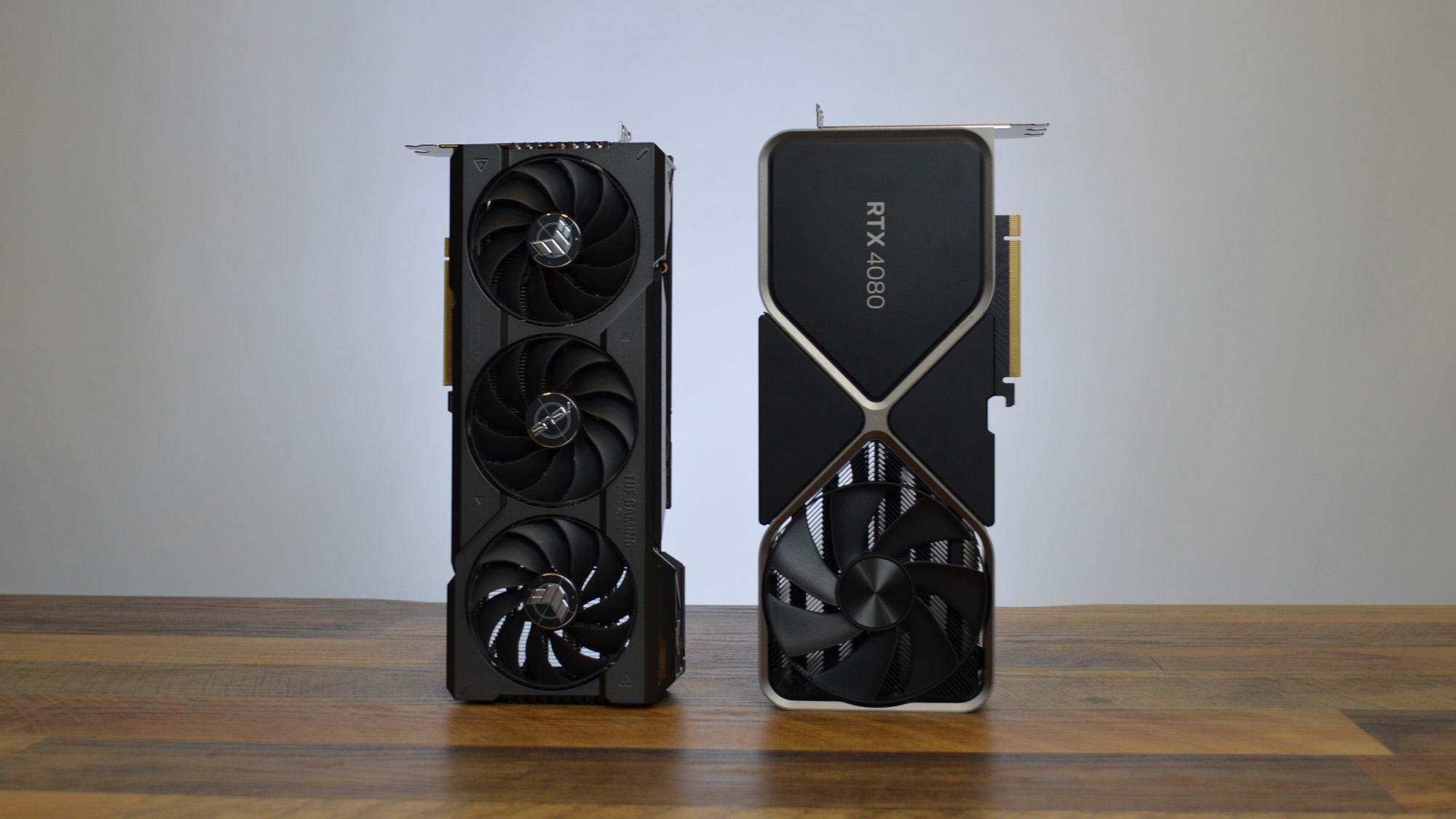
Sign up for breaking news, reviews, opinion, top tech deals, and more.
You are now subscribed
Your newsletter sign-up was successful
The Nvidia RTX 4070 Ti is here, so gamers everywhere looking to upgrade their rigs are undoubtedly very excited.
The RTX 4070 Ti is the first Nvidia graphics card to hit the market under $1,000 / £1,000, and with some incredibly strong competition from AMD recently, the RTX 4070 Ti really needs to hit it out of the park for Nvidia. Fortunately, it does exactly that, walloping its predecessor — and even the last-gen flagship Nvidia card, the RTX 3090 Ti — in our extensive suite of tests.
With such strong performance and a compelling price, it's definitely a card that is going to tempt a lot of gamers out there. But, understandably, there are going to be just as many gamers who will want to know if it's worth making the jump up to the Nvidia RTX 4080 instead.
While it is more expensive, does the level of performance justify spending the extra money? Even though the RTX 4070 Ti is cheaper, it's still not a cheap graphics card by any means, so why not just go for the best if you're going to spend hundreds of dollars?
Fortunately, I've put both cards through rigorous testing across synthetic, creative, and gaming benchmarks to really push them to their limits and see how well they perform, and I've brought you the results to help you figure out which graphics card is the right one for you.
Nvidia RTX 4070 Ti vs RTX 4080: Price
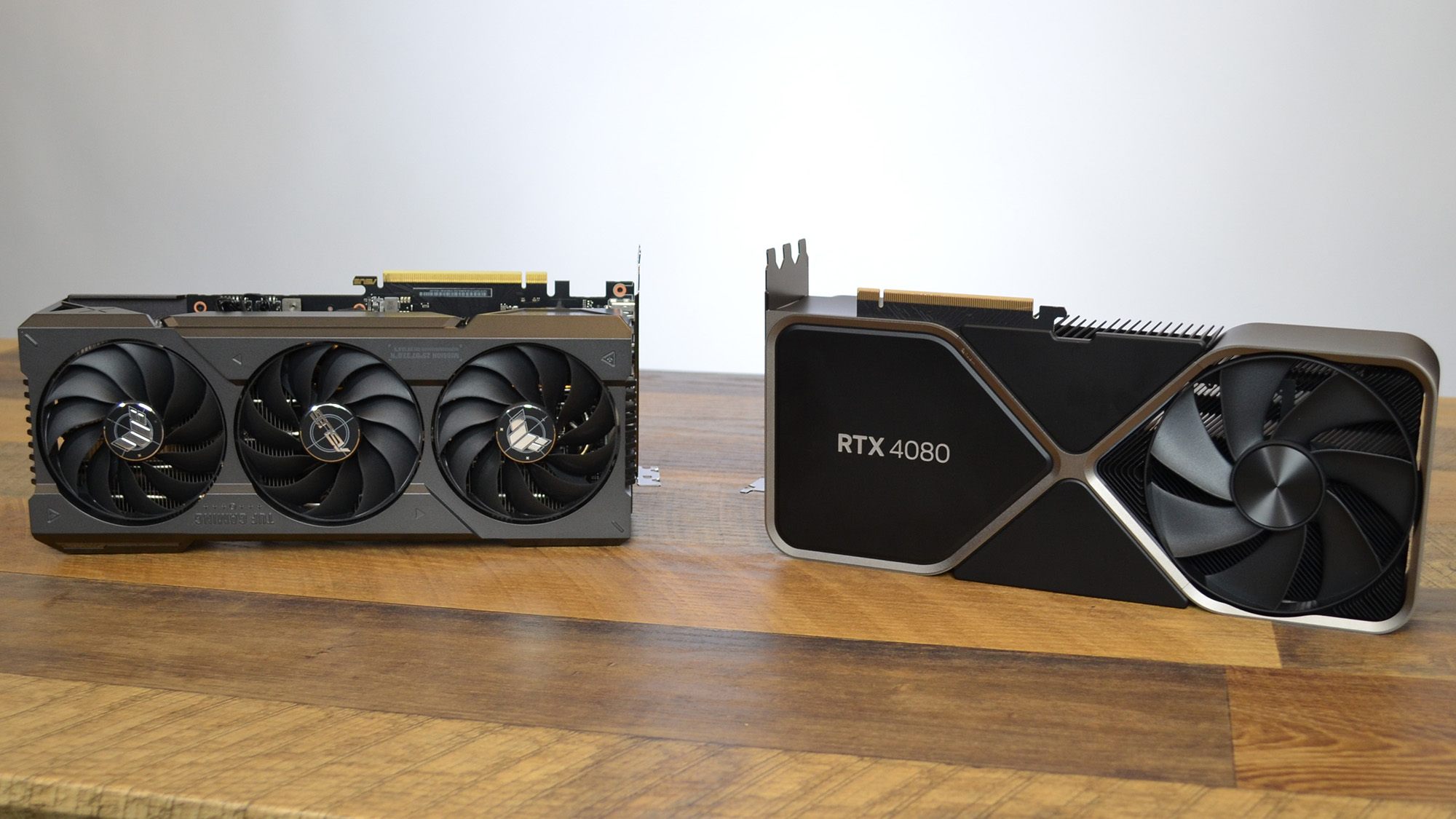
Right up front, the Nvidia RTX 4070 Ti has a much lower MSRP than the RTX 4080, so the RTX 4080 would seem to have an uphill battle when it comes to price. But that's not the whole story.
The biggest difference between the RTX 4070 Ti and the RTX 4080 on the pricing front is that the Nvidia RTX 4080 has an Nvidia's Founders Edition card on the market, which is produced by Nvidia itself and is sold at Nvidia's MSRP. This helps keep third-party cards from absolutely ramping up the price too much since Nvidia itself is competing directly with card manufacturers.
Sign up for breaking news, reviews, opinion, top tech deals, and more.
This isn't the case with the RTX 4070 Ti, though, since Nvidia isn't releasing a Founders Edition of this particular card. That means third-party manufacturers can charge much higher than Nvidia's MSRP if they want, so actually finding an RTX 4070 Ti at its $799 MSRP will be a challenge. Meanwhile, you can at least try to get the RTX 4080 directly from Nvidia if you want and you'll be paying the 4080's $1,199 MSRP.
All of that is to say that even though the RTX 4070 Ti is cheaper on paper than the RTX 4080, in reality, you're likely to be paying $100 to $200 more for the RTX 4070 Ti, which puts its actual price much closer to the RTX 4080's. It is still cheaper though, and by a healthy amount — especially if you're looking at third-party RTX 4080 cards rather than a Founders Edition.
If price is your main concern, no matter which way you go, you're going to be spending less on the RTX 4070 Ti, and the RTX 4070 Ti has a better price-to-performance value than the RTX 4080, overall.
- Winner: Nvidia RTX 4070 Ti
Nvidia RTX 4070 Ti vs RTX 4080: Design
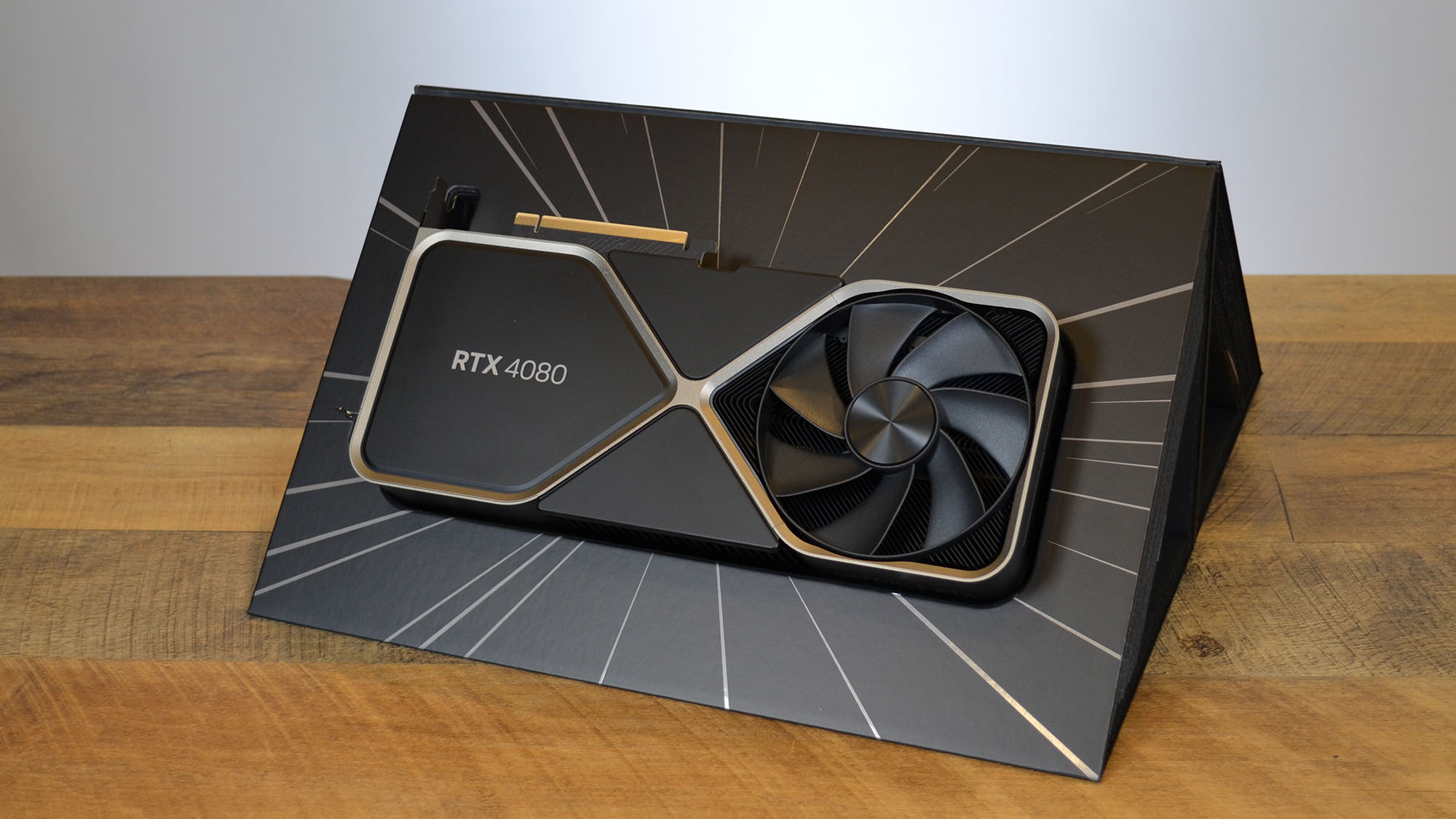
Both the Nvidia RTX 4070 Ti and RTX 4080 have several board partners making their own cards with these Nvidia GPUs, so every card will follow a particular brand's design in terms of size, number of fans, etc.
Again, where the difference lies is in the lack of an Nvidia Founders Edition for the RTX 4070 Ti, so you'll probably have to wait for the RTX 4070 or opt for the RTX 4080 if you want to get Nvidia's design for your next graphics card.
Other than the occassional difference in boost clock speeds, there won't be that much difference between an Nvidia Founders Edition card and one made by MSI, Gigabyte, and others, so it's really up to your personal preference. That said, all other things being more or less equal, the fact that the RTX 4080 does have a reference card from Nvidia is at least a point in its favor since you have at least an "official" option to choose from.
There also isn't much difference in terms of the size of the RTX 4070 Ti and the RTX 4080. These are both big honking graphics cards that will require you to get a supporting GPU bracket if you plan to install them into your rig (and make sure you have enough PCIe slot space to fit it). If you're looking for the smaller of the two cards, they're going to be pretty much the same, so no matter which one you go with, these cards are going to challenge your cable management skills for sure.
- Winner: Tie
Nvidia RTX 4070 Ti vs RTX 4080: Performance
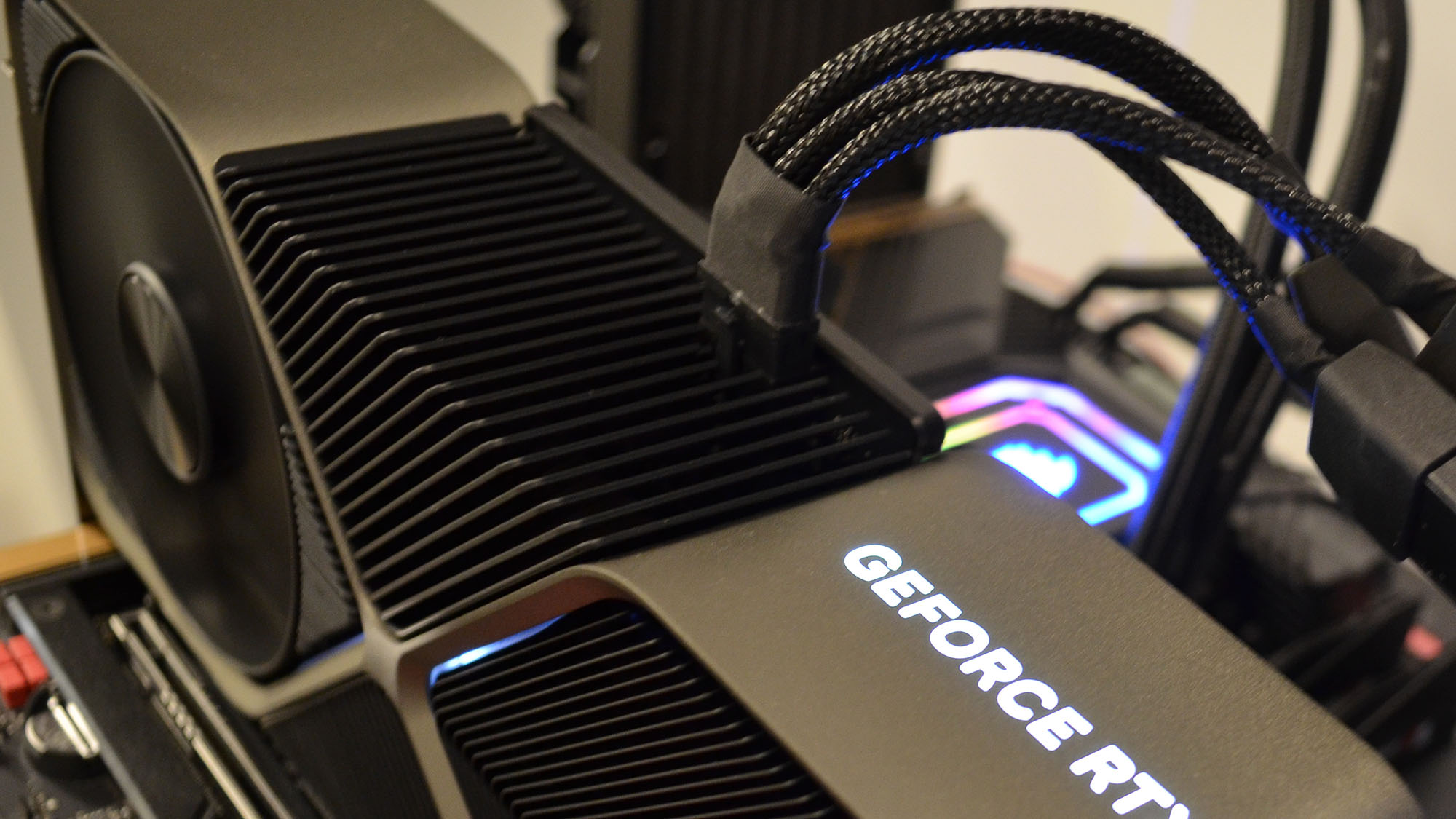
This is where the rubber really hits the road for the Nvidia RTX 4070 Ti vs RTX 4080, since both of these cards are expected to perform at the highest levels in their class — which introduces a hiccup in our comparison.
Technically, the Nvidia RTX 4070 Ti is a 1440p graphics card, so it is a bit unfair to put it head to head with a 4K graphics card like the RTX 4080. But the RTX 4070 Ti has the exact same specs as the "unlaunched" Nvidia RTX 4080 12GB variant first announced in September 2022, so aren't we really comparing the RTX 4080 Lite to the RTX 4080?
Kinda. Nvidia definitely fumbled the bag a bit when it came to the RTX 4080 launch, and in another universe the RTX 4070 Ti would be the RTX 4080, and the RTX 4080 we do have would be the RTX 4080 Ti, so it's not as unfair a comparison as it might seem at first glance.
This is all largely academic at this point though, since any way you cut it, the Nvidia RTX 4070 Ti absolutely holds it own when it comes to 4K performance on some very demanding titles. As such, so we tested both cards with the same maxed out settings and with all tests running at 4K resolution, wherever that was an option.
| BENCHMARK | NVIDIA RTX 4070 TI | NVIDIA RTX 4080 | Difference |
|---|---|---|---|
| 3DMark Speedway | 5,437 | 7,130 | 31.14% |
| 3DMark Port Royal | 14,145 | 17,762 | 25.57% |
| 3DMark Timespy Extreme | 9,566 | 13,654 | 42.73% |
| 3DMark Timespy | 19,894 | 24,789 | 24.61% |
| 3DMark Firestrike Ultra | 13,669 | 17,322 | 26.72% |
| 3DMark Firestrike Extreme | 25,347 | 31,341 | 23.65% |
| Row 6 - Cell 0 | Row 6 - Cell 1 | Row 6 - Cell 2 | Row 6 - Cell 3 |
| Average performance | 14,767 | 18,666 | 26.40% |
When it comes to raw performance, as tested with synthetic benchmarks, the real power of the AD103 GPU in the RTX 4080 comes through. It is roughly 26% more powerful in raw terms than the RTX 4070 Ti, and while some applications perform even better than that (and some worse), this number is pretty bang on overall when you factor out some outliers that cut in the RTX 4080's favor.
| BENCHMARK | NVIDIA RTX 4070 TI | NVIDIA RTX 4080 | DIFFERENCE |
|---|---|---|---|
| Blender 3.4.0 Monster | 3,715 | 4,812 | 29.52% |
| Blender 3.4.0 Junkshop | 1,665 | 2,238 | 34.41% |
| Blender 3.4.0 Classroom | 1,848 | 2,320 | 25.54% |
| PugetBench for Premiere Pro | 845 | 946 | 11.95% |
| PugetBench for Photoshop | 1,007 | 1,072 | 6.45% |
| HandBrake (4K to 1080p, FPS) | 57 | 58 | 1.75% |
| Row 6 - Cell 0 | Row 6 - Cell 1 | Row 6 - Cell 2 | Row 6 - Cell 3 |
| Average Performance | 1,816 | 2,278 | 25.44% |
The power of the AD103 GPU in the RTX 4080 shines through in our creative benchmark suite, especially in the Blender 3.4.0 tests.
Here, Blender Cycles render a scene as many times as it can in a set time limit using Nvidia's CUDA GPU instruction set. The results speak for themselves, as the RTX 4080 renders 3D scenes about 30% faster than the RTX 4070 Ti on average. While we haven't tested it specifically, you can probably expect the same kind of performance in other rendering applications like Maya as you'll find in Blender.
The benefits dimish as you get into video editing and rasterized image processing, though, and is pretty negligible when it comes to encoding 4K video to 1080p. But, in the latter case, the difference will likely be more noticeable if you are working with 8K video, as the extra 4GB VRAM in the RTX 4080 will help process more large-resolution frames in a single go without running into its VRAM ceiling than you'd get with the RTX 4070 Ti, which has 12GB VRAM (or about 25% less than the RTX 4080).
| BENCHMARK | NVIDIA RTX 4070 TI | NVIDIA RTX 4080 | DIFFERENCE |
|---|---|---|---|
| Metro Exodus (No RTX) | 79 | 100 | 26.58% |
| Metro Exodus (Ultra RTX) | 50 | 64 | 28.00% |
| F1 2022 Dubai (Wet) (Min RTX) | 140 | 228 | 105.71% |
| F1 2022 Dubai (Wet) (Max RTX) | 54 | 115 | 112.96% |
| Total War: Warhammer III | 53 | 67 | 26.42% |
| Cyberpunk 2077 (No RTX) | 50 | 62 | 24.00% |
| Cyberpunk 2077 (Psycho RTX) | 22 | 28 | 27.27% |
| Dirt 5 (RTX off) | 109 | 137 | 25.69% |
| Dirt 5 (RTX on) | 94 | 117 | 24.47% |
| Hitman 3 Dubai (No RTX) | 135 | 178 | 31.85% |
| Hitman 3 Dubai (Max RTX) | 36 | 45 | 25.00% |
| Tiny Tina's Wonderland | 104 | 125 | 20.19% |
| Shadow of the Tomb Raider | 50 | 85 | 70.00% |
| Row 13 - Cell 0 | Row 13 - Cell 1 | Row 13 - Cell 2 | Row 13 - Cell 3 |
| Average performance | 74 | 103 | 39.19% |
Where the Nvidia RTX 4070 Ti does manage to impress us though is with its gaming chops. It still gets blown clean out of the water by the RTX 4080, but when we compared the RTX 3070 Ti to the RTX 4070 Ti, there were gaming benchmarks that the RTX 3070 Ti couldn't even run at 4K without crashing, and those it did run had absolutely dreadful frames-per-second scores by the end.
When you have a generational jump, as in the RTX 3070 Ti to the RTX 4070 Ti, you'd expect a modest 15% to 20% improvement if you're lucky, but the leap from the 3070 Ti to the 4070 Ti is truly incredible, and it really does put the RTX 4070 Ti into a higher class of graphics card than it had been just a few months ago.
All of that was to underline that even though the Nvidia RTX 4080 outperforms the RTX 4070 Ti in every game we tested by a huge margin — in the case of F1 2022, it even laps the RTX 4070 Ti, which is fitting — the RTX 4070 Ti technically shouldn't even be in the same ring as the RTX 4080. And while the RTX 4070 Ti definitely loses on the score card when the match is over, I'd like to think it's got an Nvidia flag wrapped around its shoulders, standing on the ropes, and crying out "Jensen!" as the music swells at the end.
| CATEGORY | NVIDIA RTX 4070 TI | NVIDIA RTX 4080 | DIFFERENCE |
| Synthetic Benchmarks | 14,676 | 18,666 | 26.40% |
| Creative Benchmarks | 1,816 | 2,278 | 25.44% |
| Gaming Benchmarks | 74 | 103 | 39.19% |
| Final Performance Average | 5,522 | 7,016 | 27.06% |
| Final Points Per MSRP Dollar | 6.911 | 5.851 | -15.33% |
- Winner: Nvidia RTX 4080
Which one should you buy?
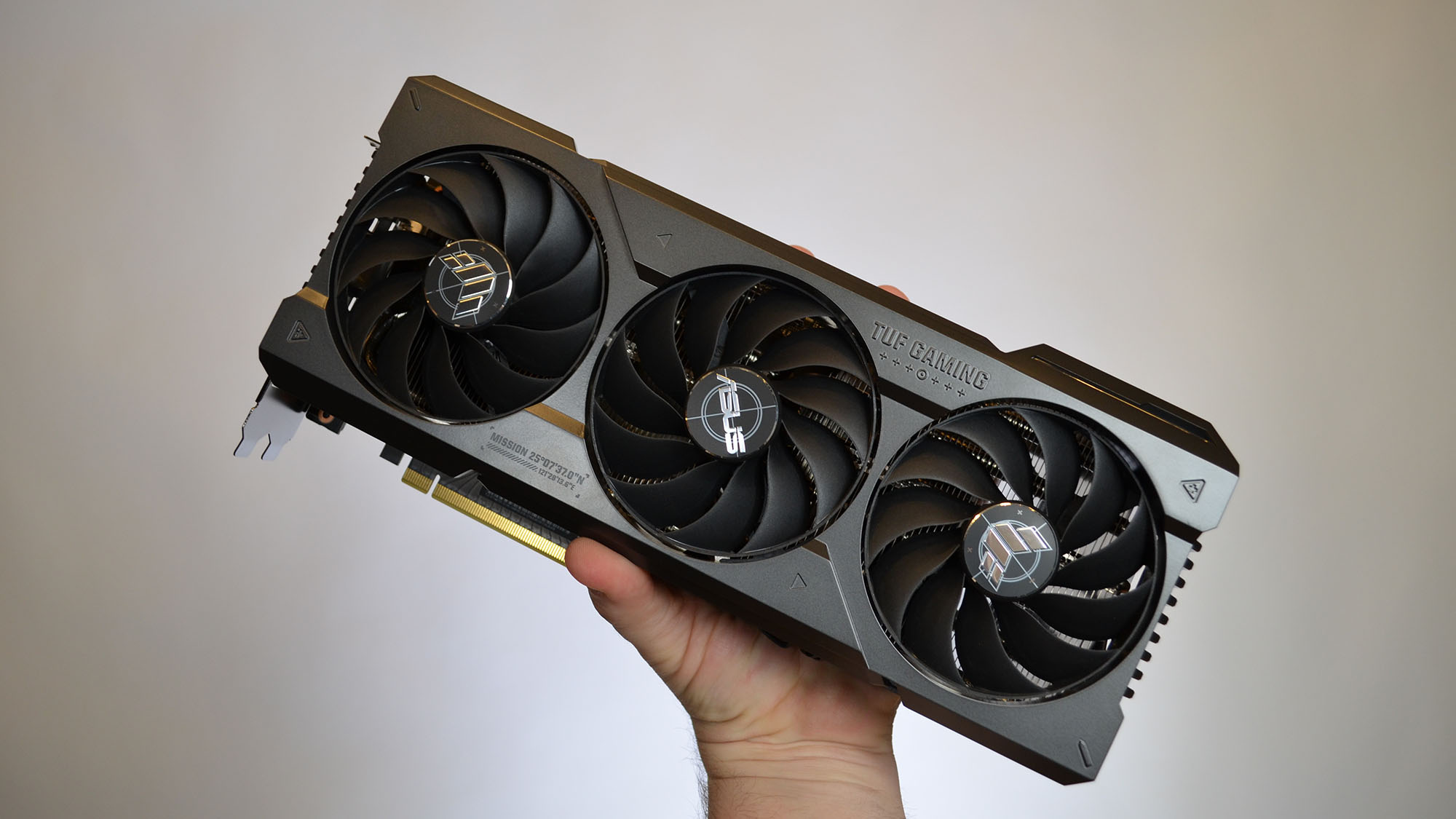
Now it comes down to the real question: should you buy the Nvidia RTX 4070 Ti or the RTX 4080? We can't answer that for everyone, since everyone is going to have different situations, but there are some things we can say to help guide you through the decision.
If money if your concern, go for the RTX 4070 Ti. It's a very powerful graphics card, and is honestly the best graphics card on the market right now in terms of pure value proposition. Its gaming performance is surprisingly excellent at 4K and absolutely fantastic at 1440p. If you want the best balance of price and performance, then this is definitely the card you'll want to buy.
If you're more interested in getting the best gaming performance you can without having to go all in on the RTX 4090 (and spend twice the price of the RTX 4070 Ti in the process), then the RTX 4080 is your best bet. It runs circles around the RTX 4070 Ti in 4K gaming performance, and it's honestly about as future proof a graphics card as you're going to find.
I'd also say that the RTX 4080 is a better creative's graphics card, so for those who need a new graphics card for work, the RTX 4080 is going to be the card to buy — assuming you've discounted buying the RTX 4090, which is really the card that professional users should be buying anyway.
It will probably be another five or six years before any games come out that list an RTX 4080 as its recommended spec, much less its minimum, so this card will likely burn out from extended use long before you'll run up against a game you can't play at 4K and get a great framerate, especially with DLSS 3.
The RTX 4070 Ti might be "obsolete" sooner, but unless you're using your next graphics card for high-end 3D rendering for TV & film, the RTX 4070 Ti is going to serve you just as well for its entire useful life before you ever have to worry about whether you can play the latest games at high to max settings.
Whichever way you go, though, you're going to have an incredibly powerful piece of kit in your hands, so make the choice that's right for you and enjoy.

John (He/Him) is the Components Editor here at TechRadar and he is also a programmer, gamer, activist, and Brooklyn College alum currently living in Brooklyn, NY.
Named by the CTA as a CES 2020 Media Trailblazer for his science and technology reporting, John specializes in all areas of computer science, including industry news, hardware reviews, PC gaming, as well as general science writing and the social impact of the tech industry.
You can find him online on Bluesky @johnloeffler.bsky.social